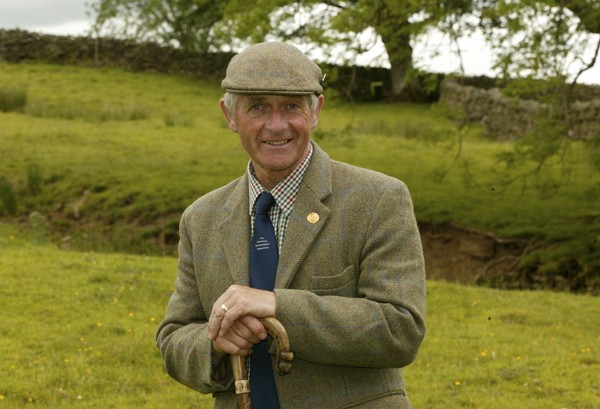Upland Keeper

Readers will have their own examples, but it never ceases to amaze me just how adaptable wildlife can be when it comes to an accommodation with the human race ? when it suits them, that is.
I keep a few domestic duck that spent their roosting hours on a small, spring-fed pond which, when freezing weather strikes, always has a small patch that remains open where the water flows in.
During the winter of 2009/10, when most wildlife up here was under dire pressure, a couple of wild mallard decided to take up residence with my Aylesbury ducks. I say wild to distinguish from reared duck, which tend to have some affi nity with their surrogate parents ? us humans!
From scattering far and wide at my approach when they first arrived, they settled down to the point where they became tame indeed and would simply do a circuit of the field and drop straight back in as I departed with the empty food bucket. That winter passed and so did my adopted duck, until the snow arrived again this winter. She was first back, followed in a day or so by her mate, and they quickly settled down into the same routine. This time, though, she is still coming to feed and has even progressed to the hens? feeding station beside the house. I?m expecting her to stop soon for she should have some ducklings shortly, and I will have to wait for another winter to see her again.
A mini menagerie
The duck is not the only visitor we have for breakfast; there are also a pair of grey partridges, the dominant two of a covey that also found refuge and food during the snow, and numerous stock doves from a nearby quarry. I have to to say that seeing these delightful little doves at close quarters is a real treat as they are so pretty.
We have numerous wild pheasants, which end up paying almost no attention to me as I go around doing my various chores. Then there are the rabbits, which are small in size but have some grace before I require them to feed something else. Of course, there are also countless chaffinches and other seed-eaters that all make use of the fact that I feed other things, and are quite prepared to put aside any fear of me when there is a free meal to be had.
An orphanage with history
During my life I have had so many waifs and strays from the natural world that I have almost lost count. There was a young house martin, found on the ground, which was fed for weeks on every sort of fly that I could catch during my summer holidays; and a young hedgehog, which had soft white spines when I first received it, lived in our garden for many years before it vanished. It used to come for a bite to eat every evening, and spent the winter safe and sound in a box full of leaves. It possessed a surprising capacity to collect parasites and had a biannual treatment for them to keep the box clear. This creature also did an excellent job in the garden eating slugs, for which my father was grateful as it rather repaid all the time he spent sorting homes for my menagerie.
There was also a young leveret, born by Caesarean when her mother was shot, which was one of my most arduous tenants. Fed countless times each day, she was the survivor of three and lived to reach maturity, when she left for the open countryside.
In addition, I have had the odd wild duckling, pheasant chicks retrieved from their dead mothers that had been killed on the road, a tiny partridge saved from the same fate? the list goes on. The odd predator has also come and gone, with even a young stoat among the tally.
My current ball of fur is a vole, which I picked up when it was no larger than a chestnut. I thought it was dead and was going to keep it for a taxidermist friend, but after a few minutes in my hand it began to move. It was so small I knew it would not survive and took it home. Some women may be frightened of such things, but not my wife who fussed over it, bedded it down with a week?s supply of our vegetables and, ever since, our vole has been here. Sadly, she will never be able to leave us, for as she grew up we realised she is completely blind, which is probably why I found her where I did, turfed out by her mother. Nature is a harsh parent at times, and anything that is not perfect ends to be discarded to die.
Our vole is now fully grown and seems content with her lot. She may never appreciate it but she is one lucky vole indeed ? the latest in a line of orphans that all accepted what was on offer. I wonder what will be next?








